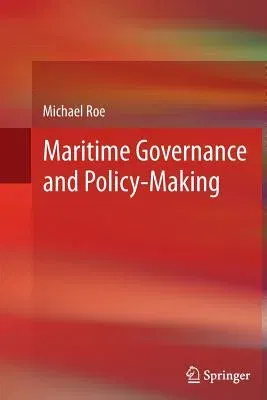A close analysis of the framework of existing governance and the
existing jurisdictional arrangements for shipping and ports reveals that
while policy-making is characterized by national considerations through
flags, institutional representation at all jurisdictions and the
inviolability of the state, the commercial, financial, legal and
operational environment of the sector is almost wholly global. This
governance mismatch means that in practice the maritime industry can
avoid policies which it dislikes by trading nations off against one
another, while enjoying the freedoms and benefits of a globalized
economy.
A Post-modern interpretation of this globalized society prompts
suggestions for change in maritime policy-making so that the governance
of the sector better matches more closely the environment in which
shipping and ports operate. Maritime Governance and Policy-Making is a
controversial commentary on the record of policy-making in the maritime
sector and assesses whether the reason for continued policy failure
rests with the inadequate governance of the sector.
Maritime Governance and Policy-Making addresses fundamental questions
of governance, jurisdiction and policy and applies them to the maritime
sector. This makes it of much more interest to a much wider audience -
including students, researchers, government officials, and those with
industrial and commercial interests in the shipping and ports areas -
and also of more value as it places the specific maritime issues into
their wider context.
Maritime Governance and Policy-Making addresses fundamental questions
of governance, jurisdiction and policy and applies them to the maritime
sector. This makes it of much more interest to a much wider audience -
including students, researchers, government officials, and those with
industrial and commercial interests in the shipping and ports areas -
and also of more value as it places the specific maritime issues into
their wider context.

